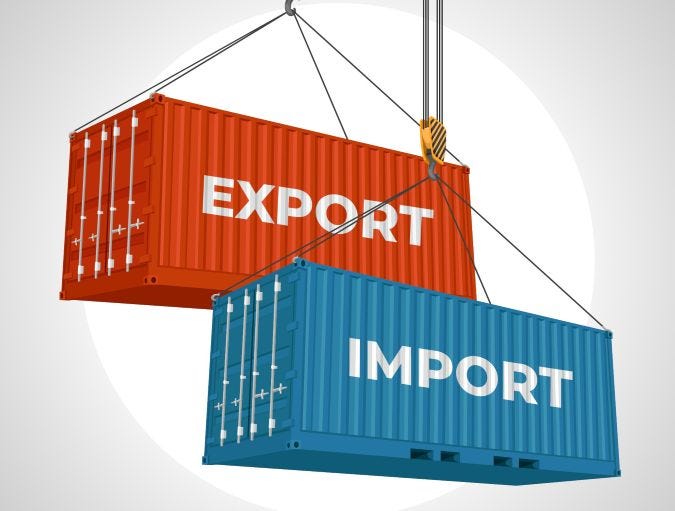Tariffs! Horrors!
Who’s afraid of the big, bad world?
Among the six-letter curse words being flung around these days—racism, sexism, Trump!— is an old one: tariff. Duties imposed on imported goods have been infamous in this country since about 1930 when the Smoot-Hawley Act was passed. Some economists blame it for the Great Depression. Others don’t.
What do I know. I’m not an economist. Neither, apparently, is Paul Krugman. Remember him? “Under any circumstances, putting an irresponsible, ignorant man who takes his advice from all the wrong people, putting him in charge of the nation with the world’s most important economy would be very bad news,” he wrote in a New York Times piece after the 2016 election. “We are very probably looking at a global recession, with no end in sight.”
It didn’t quite turn out that way, of course. So, when “economists” declare the end is near, it’s well to remember they can’t see the end any clearer than the rest of us, econometrically speaking.
What should be evident to all is that the U.S. is on an unsustainable economic path featuring federal deficit spending, an undervalued blue-collar labor force, and vast outsourcing of manufacturing, including to some political systems that detest the U.S. What could go wrong!
Citing statistics is dangerous. After all, the progressive worsening of untruth is said to be lies, damned lies and statistics. Still, some numbers are foreboding. The U.S. posted a trillion-dollar trade deficit in goods last year. The U.S. has had a net loss of 70,000 manufacturing facilities, large and small, in the last 25 years, with much of the work outsourced. Tariffs and value-added taxes (VAT) are a cost of doing business with a hundred or more countries.
Then there are nations like China, Indonesia, Thailand, and Philippines that produce consumer-appealing goods ranging from aluminum and carpet to chocolate and toys and sometimes do so using child labor and slave labor. (Here is a link to a meticulous listing of such unscrupulous countries by the Bureau of International Labor Affairs: https://www.dol.gov/agencies/ilab/reports/child-labor/list-of-goods? ) For American manufacturers to compete unaided against slavers and child abusers seems unfair.
Lots of numbers are thrown around purporting to show how this or that policy is ruinous and how salvation lies with a rival policy, but economics is not purely a numbers game. It is a social science, not a natural one. It is about relationships, about people and institutions making dollars-and-cents decisions. Though it is empirically based, economics is infused with the unpredictability of human behavior. That skews everything.
The political establishment is certain that trying anything different is sure to fail, of course. After all, tried-and-true economic nostrums have worked so darned well to date, right? (See above.)
“I think we’re in for a prolonged period of chaotic Trump lashing out through whatever trade weapon he can get his hands on… U.S. policy is still being dictated by the whims of a mad king,” Krugman opined, respectfully, earlier this year.
Neither Krugman nor I know how this will all shake out, but things are being shaken up, that’s for sure, and I’m kinda liking what I see so far.



I’m not an economist (full disclosure), but I am refusing to assume the worst until time shows the real outcome. I see our deficit, debt, loss of US manufacturing to be some of our serious problems. I don’t see much being done to move us into a much better place. Too many years of short sighted policies by politicians and greedy corporate executives who have no patriotic values when it comes to our people.
When I see some new things being tried, and in spite the outcries, or because of them, I consider that shaking things up could be useful.